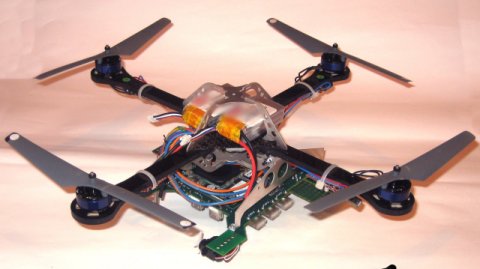SC42035 Integration project Systems and Control
The course is based on practical laboratory sessions, in which students will gain hands-on experience with the application of control theory to real-world systems. Matlab and Simulink are used as the primary software environment for the design, analysis, and real-time implementation of the algorithms. Students work in groups of two in the lab, with a setup of their choice. The setups include for instance the rotary pendulum, helicopter model, inverted pendulum on a cart, rotational pendulum, reaction wheel pendulum, and magnetic levitation system.
Study Goals
The goal of this course is to integrate and apply the theoretical knowledge gained in the compulsory courses of the Systems and Control curriculum. These courses cover the subjects of Control Theory, Physical Modeling, Filtering and Identification. The concepts and tools to be used include mechanistic modeling (based on principles like mass balances, Lagrange equations, etc.), filtering and estimation (e.g., Kalman filtering), linear control design and performance analysis, and system identification in open and closed loop. It is assumed that the students already know these concepts or are able to look them up in the literature. At the end of the course, the students should be able to:
- Develop a mathematical model of a real-world dynamical system
- Build a simulation model of the system in Matlab/Simulink
- Identify the model parameters
- Design a state estimator to recover unmeasured system states
- Design controllers that regulate the derived system model
- Integrate their acquired control engineering knowledge in laboratory setups
Teachers
D. Boskos
Last modified: 2023-11-03

Details
| Credits: | 5 EC |
|---|---|
| Period: | 0/0/0/4 |